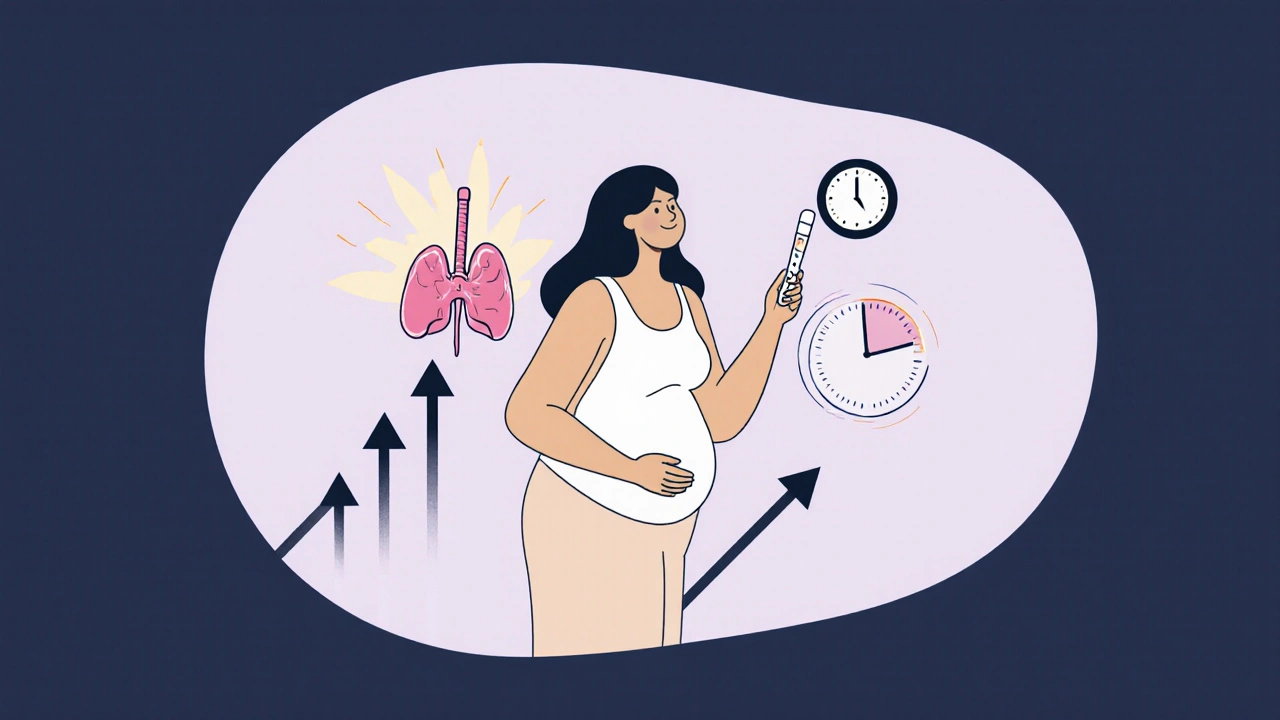Hypothyroidism in Pregnancy: What You Need to Know About Symptoms, Risks, and Treatment
When you're pregnant, your body doesn't just change—it rewires itself. One of the most critical systems affected is your thyroid, a small gland in your neck that produces hormones controlling metabolism, energy, and brain development in the fetus. Also known as underactive thyroid, hypothyroidism pregnancy happens when your thyroid doesn't make enough hormone to keep up with the demands of growing a baby. This isn't rare—up to 2 in 100 pregnant women have it, and many don’t even know because symptoms like fatigue, weight gain, and dry skin look like normal pregnancy side effects.
But here’s the thing: untreated hypothyroidism doesn’t just make you feel tired. It can affect your baby’s brain development, increase the risk of preterm birth, low birth weight, and even miscarriage. The thyroid hormone, specifically T4, is vital for the baby’s nervous system in the first trimester, before their own thyroid even kicks in. Your body needs 50% more thyroid hormone during pregnancy, and if you already have an underactive thyroid—or develop one during pregnancy—your dose of levothyroxine (the standard treatment) usually needs to be adjusted. Many women find they need a higher dose by week 8, and your doctor should check your TSH levels every 4 to 6 weeks until you’re stable.
It’s not just about taking a pill. You also need to know how to take it right. Levothyroxine shouldn’t be taken with iron, calcium, or prenatal vitamins—they block absorption. Wait at least 4 hours after your pill to take them. And don’t skip blood tests just because you feel fine. Your TSH target during pregnancy is tighter than usual: under 2.5 mIU/L in the first trimester, and under 3.0 later on. If you had hypothyroidism before pregnancy, your doctor should check your levels as soon as you know you’re pregnant. If you didn’t know you had it? Screening isn’t routine everywhere, but if you have a family history of thyroid disease, have had miscarriages, or feel unusually exhausted, ask for a TSH test.
After delivery, your thyroid needs change again. Some women’s doses go back to pre-pregnancy levels, while others develop postpartum thyroiditis—a temporary inflammation that can cause swings between too much and too little hormone. If you’re breastfeeding, levothyroxine is safe. The amount that passes into breast milk is tiny and won’t affect your baby.
What you’ll find in the articles below isn’t just theory. It’s real-world guidance from people who’ve been there: how to recognize the signs you might be missing, how to talk to your doctor about dosage changes, what bloodwork to demand, and how to avoid common mistakes that put your baby at risk. These aren’t generic advice pieces—they’re practical, tested tips for managing thyroid health when your body is doing its most important job.
Thyroid Medications in Pregnancy: Dose Adjustments and Monitoring
Thyroid medication doses often need to increase by 20-30% during pregnancy to support fetal brain development. Regular TSH monitoring every 4 weeks and proper pill timing are critical for healthy outcomes.
read more

